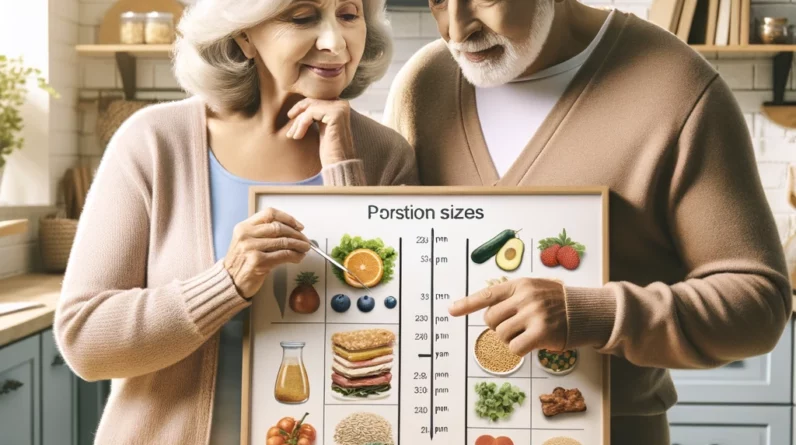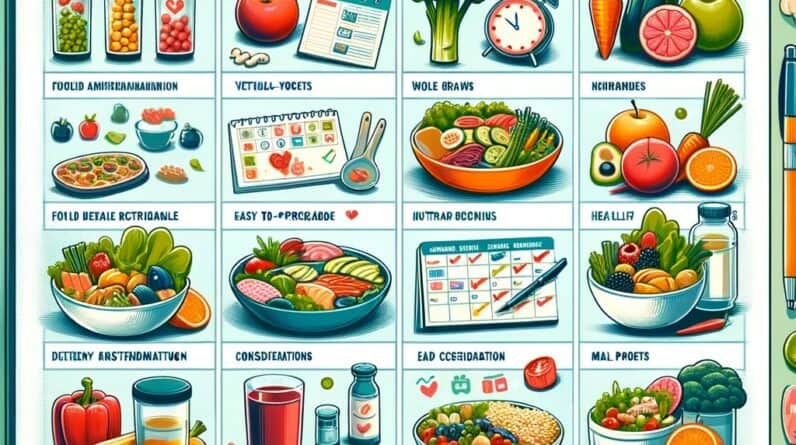

Dementia Discovery That is Leaving Doctors Speechless (Try This Tonight)
Better than Morphine For Joint Pain… Yet Safer Than Aspirin?
Retire With Freedom. Start Earning Extra Cash Today.
If you’re wondering how aging affects your nutritional needs, you’re not alone.
I’m going to touch on several aspects of diet that often get overlooked when it comes to older adults.
You’re going to find out about some common myths, challenges, and why nutrition is critical for managing age-related health issues.
You might have heard some say, ‘Eating habits don’t need to change with age.’
That’s one of the myths I’m here to bust. Our bodies evolve as we age, and so do our nutritional requirements.
Understanding these changes is key to staying healthy through the years.
What does this entail exactly? Well, older adults may experience a diminished sense of taste and smell, which can lead to decreased appetite.
They also often face challenges like difficulty chewing or swallowing and changes in digestion. All these factors make choosing the right foods even more crucial.
Moreover, nutrition isn’t just about managing weight or chronic diseases.
It’s also about maintaining muscle mass, bone density, and overall vitality.
Deficiencies in certain vitamins and minerals can lead to significant health issues that affect quality of life.
This brings us to the heart of the matter: a balanced diet.
A balanced diet will look slightly different for everyone, especially for seniors who might deal with unique health concerns.
Yet, there are common elements that are beneficial across the board.
So, what are these components? Let’s investigate that in the next section, where you’ll learn the building blocks of a nutritious diet that caters to the needs of older adults.
Components of a Balanced Diet for Seniors
I’m here to help you understand why it’s crucial for seniors to nosh on the right stuff.
A balanced diet packs a punch, offering more than just energy – it’s about keeping your body in top-notch condition as you age.
Each nutrient plays a role in this complex puzzle, kind of like putting together the pieces that maintain health.
Proteins are the building blocks, vital for repair; carbs are the go-to for energy; fats aren’t the enemy – they’re essential for brain health.
Oh, and let’s not forget fiber; it’s a real game-changer for digestive health.
Choose something that resonates with you when it comes to food.
Vibrant fruits and veggies loaded with vitamins, lean meats, fish for those omega-3s, whole grains, and dairy or alternatives rich in calcium – these are the superheroes in the dietary world for older adults.
And just because it’s crucial, let’s talk about water.
Staying hydrated isn’t just a nice-to-have; it’s a must.
Dehydration can be a sneaky foe for seniors, and keeping up with fluids is key to keeping the system running smoothly.
Adjusting Dietary Habits as You Age
In my opinion, aging doesn’t have to mean giving up the foods you love.
However, it often involves adapting your diet to align with your changing body’s needs.
Let’s explore how you can manage these shifts without sacrificing flavor or enjoyment.
Appetite and metabolism naturally decline with age, which means seniors may need fewer calories.
While that’s the case, the need for nutrients remains constant or even increases.
You can meet these needs by choosing nutrient-dense foods like fruits, vegetables, whole grains, and lean proteins.
For many, this may mean altering portion sizes rather than overhauling their entire diet.
If you’re dealing with dietary restrictions or health conditions like diabetes, heart disease, or high blood pressure, it’s crucial to work with a healthcare provider to tailor your diet appropriately.
They can help you understand how certain foods affect your condition and suggest alternatives that cater to your taste preferences and nutritional requirements.
You might wonder how physical activity fits into this picture.
Well, it’s a key player in promoting appetite and boosting metabolism.
Engaging in regular exercise, like walking or swimming, supports muscle maintenance and overall well-being.
So, when you pair this activity with a balanced diet, you’re setting the stage for a healthier lifestyle as you age.
Don’t worry too much about making these adjustments overnight.
Choose something that resonates with you and start small.
You can always adjust your approach down the road, especially as you start seeing the benefits of these lifestyle changes.
Navigating Food Choices: Practical Tips for Older Adults
Now, after understanding the importance of adjusting your diet as you get older, let’s focus on some pragmatic ways to implement these changes.
For older adults, especially those on a fixed income, planning nutritious meals can be a bit tricky, but it’s definitely not insurmountable.
I’m going to share a few budget-friendly tricks for smart grocery shopping.
Start by making a list of what you need before you leave home; this practice can not only help prevent impulse buys but also ensures you stick to healthy options.
Look for sales and discounts, and don’t be shy to use coupons—your wallet will thank you.
What’s more, while you’re at the store, leverage the power of nutritional labels.
They are your best friends in making informed decisions. Choose items lower in sodium, sugars, and saturated fats but rich in fiber, vitamins, and minerals.
You don’t have to be a nutritionist to understand these labels—just a few quick glances at the right numbers and you’re all set.
Lastly, it’s key to stay in-the-know about the latest dietary guidelines tailored for seniors.
Dietary needs can shift over time, and what was recommended a decade ago might not hold true today.
By keeping up-to-date, you ensure you’re not only following best practices but also providing your body with what it truly requires.
Remember, your first attempt at adjusting your diet doesn’t need to be your last. It’s okay to take small steps and make incremental changes.
The goal is to foster a sustainable, enjoyable approach to eating that supports your wellbeing throughout your senior years.
And, if you’re ever in doubt, consulting with a healthcare professional or a registered dietitian can provide personalized advice that complements these strategies.
Disclaimer: The information in this article is intended for educational and entertainment purposes only and should not be used instead of or contrary to that of a medical professional.
Before taking supplements, starting a new diet, or embarking on a new exercise regime please consult a medical or nutritional professional.
The owners of “Getting Healthy After 50” are not medical professionals and are simply redistributing information that is freely available on the internet.






